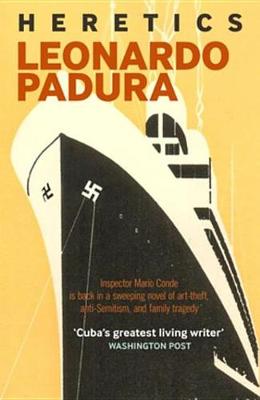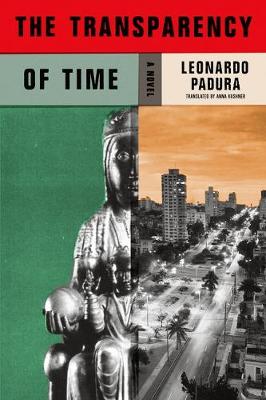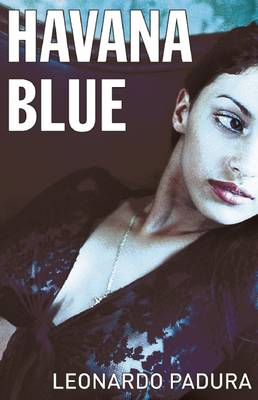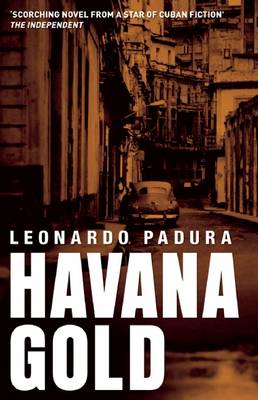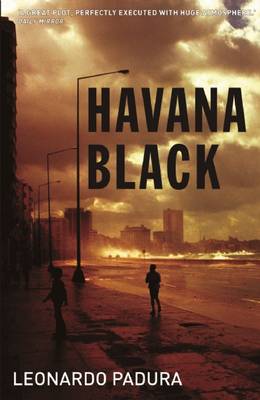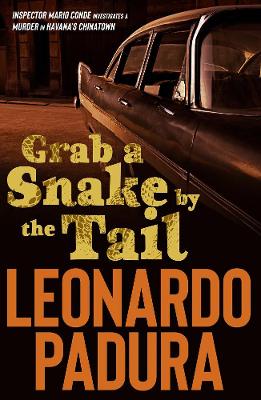Mario Conde Investigates
6 total works
"A sweeping novel of art theft, anti-Semitism, contemporary Cuba, and crime from a renowned Cuban author. In 1939, the Saint Louis sails from Hamburg into Havana's port with hundreds of Jewish refugees seeking asylum from the Nazi regime. From the docks, nine-year-old Daniel Kaminsky watches as the passengers, including his mother, father, and sister, become embroiled in a fiasco of Cuban corruption. But the Kaminskys have a treasure that they hope will save them: a small Rembrandt portrait of Christ. Yet six days later the vessel is forced to leave the harbor with the family, bound for the horrors of Europe. The Kaminskys, along with their priceless heirloom, disappear. Nearly seven decades later, the Rembrandt reappears in an auction house in London, prompting Daniel's son to travel to Cuba to track down the story of his family's lost masterpiece. He hires the down-on-his-luck private detective Mario Conde, and together they navigate a web of deception and violence in the morally complex city of Havana. In Heretics, Leonardo Padura takes us from the tenements and beaches of Cuba to Rembrandt's gloomy studio in seventeenth-century Amsterdam, telling the story of people forced to choose between the tenets of their faith and the realities of the world, between their personal desires and the demands of their times. A grand detective story and a moving historical drama, Padura's novel is as compelling, mysterious, and enduring as the painting at its center. "--
Lieutenant Mario Conde is suffering from a terrible New Year's Eve hangover. Though it's the middle of a weekend, he is asked to urgently investigate the mysterious disappearance of Rafael Morin, a high-level business manager in the Cuban nomenklatura. Conde remembered Morin from their student days: good-looking, brilliant, a "reliable comrade'' who always got what he wanted, including Tamara the girl Conde was after. But Rafael Morin's exemplary rise from a poor barrio and picture perfect life hide more than one suspicious episode worthy of investigation. While pursuing the case in a decaying but adored Havana, Conde confronts his lost love for Tamara and the dreams and illusions of his generation.
A brutally mutilated body is discovered washed up in the bay of Havana. The body of Miguel Forcade Mier, head smashed in by a baseball bat, genitals cut off by a dull knife. Forcade, once an official in the Cuban government responsible for the confiscation of the belongings of the bourgeoisie fleeing the revolution, was an exile in Miami. Had he really returned to Havana just to visit his ailing father? Conde immerses himself in the dark history of expropriations of works of art, paintings that have vanished without trace, corrupt civil servants and old families that lost much, but not everything. Here is the disillusion of Padura's generation, many of them veterans of the war in Angola, dealing with the catastrophe that followed the collapse of Russian aide in the 1990's and now discovering the corruption of those that preceded them. Yet a eulogy of Cuba, its life of music, sex and the great friendships of those who elected to stay and fight for survival.
Havana's Chinatown is not his usual beat, but when Conde is asked to take a murder case by the sultry, perfectly proportioned Police Lieutenant Patricia Chion, a frequent object of his nightly fantasies, he can’t resist. Pedro Cuang is found hanging naked from a beam in the ceiling of his dingy room. One of his fingers has been cut off, and the outline of two arrows was carved with a knife on his chest. Was this a ritual Santería killing or a just a sordid settling of accounts in a world of drug trafficking beginning to infiltrate Cuba in the 1980s? Soon Conde discovers unexpected connections, secret businesses and a history of misfortune, uprooting and loneliness that affected many immigrant families from China. The Barrio Chino was once one of the largest Chinatowns in the West. Now it feels like a ghetto of uprooted families, with its derelict cemetery and boarded-up shops. The story is soaked in atmosphere: African spells cast by babalao sorcerers, deliciously smoke-filled bars, deep friendships, and beautiful women. Especially the exotic Afro-Chinese Patricia Chion.
